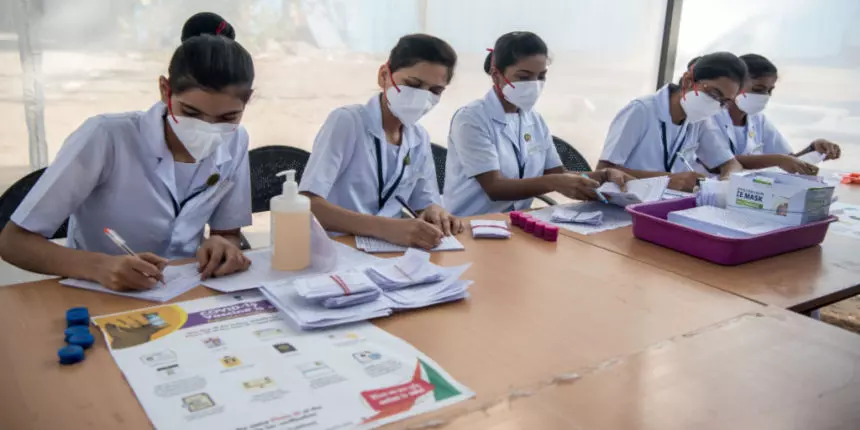Pursue MD/MS in USA
Want to study abroad? Plan your Journey
The field of nursing encompasses a broad spectrum of specialities tailored to accommodate diverse skill sets, interests and personality traits. With the ongoing evolution and expansion of the nursing profession, the array of available specialities has significantly increased, presenting nurses with a multitude of options to explore and pursue.

Choosing a nursing speciality is an important step in shaping a fulfilling and impactful career in healthcare. With several options available, ranging from paediatric care to critical care, mental health to community nursing, the decision can feel daunting. However, through self-assessment, thorough research and professional advice, one can navigate this process with confidence.
Candidates pursuing BSc nursing from various institutes often search for how to choose a nursing speciality. This introductory guide from Careers360 aims to provide nursing graduates with a structured approach to help them embark on this journey of discovery and decision-making in the nursing speciality that aligns best with their passions and career objectives.
Also check: How to choose a medical speciality after MBBS?
There are different specialities in nursing available in India. Embarking on the path to choosing a nursing speciality demands thoughtful consideration and self-reflection. Presented below are key points to assist aspiring nurses in selecting a speciality that resonates with their interests, abilities, and professional aspirations.
Self-evaluation: While selecting a nursing speciality, one must reflect on their strengths, weaknesses, interests and values. For this, graduates must consider what aspects of nursing they enjoy the most and what type of work environment they prefer.
Exploration is obligatory: Exploring the different available nursing specialities is another important step. Look into the responsibilities, scope of practice, working conditions and patient populations associated with each speciality. The research can be done through online resources, nursing organisations, journals and by talking to nurses working in various specialities.
Considering passion is important: Nursing is a field of service in which personal interest is important. One must think about what areas of healthcare excite them the most. One may enjoy working with children while others may like working with elderly or specific patient populations such as oncology or mental health.
Assess skills and experience: Not every nurse has the same skill set; therefore, assessing the same is important. Nursing graduates must evaluate their clinical skills, knowledge and experience. Some specialities may require additional training, certifications or experience. This requires an assessment of the necessary qualifications one has or is willing to pursue further education or training.
Map the opportunities: Not every nursing speciality has the same career opportunity and therefore, researching the job market for different nursing specialities is necessary while choosing one. Consider factors such as demand for nurses in that speciality, salary potential, job stability and advancement opportunities. This can be achieved by talking to the nurses currently working in specialities one is interested in. Ask them about their experiences, the challenges they face and the rewards of working in that nursing speciality. Their insights can provide valuable information to help make an informed decision.
Volunteer: Well, this is the last option when nothing is working on decision-making. In this case, nursing graduates must spend time shadowing or volunteering in different nursing specialisation courses. This hands-on experience can provide better understanding of what it’s like to work in a particular speciality and help in deciding if it’s the right fit. Be open to exploring different options and be willing to adapt with the interest and priority changes.
In conclusion, selecting a nursing speciality is a significant decision that requires careful consideration and self-reflection. By exploring interests, strengths, and career goals, conducting thorough research, seeking guidance from experienced professionals, and gaining hands-on experience where possible, one can confidently navigate the process. Remember that choosing a nursing speciality is not just about finding a job but about finding a fulfilling career where one can make a meaningful difference in the lives of patients. Therefore, nursing graduates must trust their instincts, remain open-minded, and embrace the journey as they embark on this exciting chapter in their nursing career.
Allied & Healthcare programs | 20+ Partner Universities & Institutes | 98% placement record
Get Job-Ready with New-Age Allied Health Programmes
Check your expected admission chances in MD/MS/Diploma courses based on your NEET PG Score
Your one-stop NEET PG counseling package with complete hand-holding throughout the admission journey
Get Job Ready in Healthcare | Employability-Focused Programs
Amongst top 3% universities globally (QS Rankings) | Wide Range of scholarships available